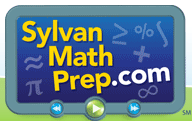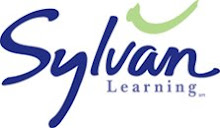The notion of supplemental education, whether it's to catch up, keep up, or get ahead has been around for a very long time. Socrates, for instance, tutored Plato, and Plato tutored Aristotle. These were all bright philosophers and scholars who learned from someone who knew more. So, how can parents know when a personal instructor is right for their child --before the first report card is received?
Ask yourself these questions:
Is your child . . .
- In need of assistance to reach his or her full potential?
- Developing low self-esteem?Losing interest in learning?
- In need of support on daily homework assignments?
- Struggling to focus on task (e.g. - spending more time daydreaming than on reading or homework.)
- Receiving test scores that do not reflect daily performance?
If you answered yes to any of these questions -- your child will benefit from personalized instruction. A good personal instructor will inspire and help students - at all levels of academic accomplishment, develop study habits and organizational skills that will result in significantly improved schoolwork and test scores.
Taking the time to consider whether to hire supplemental assistance means parents are giving their children an opportunity to excel in the classroom- from the very first day of school. When children are successful in school, they build confidence that translates into all areas of life, helping them build a strong foundation for a successful future.
The purpose of tutoring is to teach children efficient learning skills and techniques to use in the classroom and, ultimately, in the workforce as adults. It is important that parents take action early and seek a reputable supplemental education service that creates individual learning plans and develops the skills needed to achieve success.
If you notice that your child is struggling with homework at the beginning of the school year, the first step is talking with your child and determining the underlying cause. Once you know the potential source of difficulty, it will be easier to develop a strategy for changing the struggle into success.
Even a child who is doing well int he classroom can benefit from outside help to sharpen study and test taking skills. A supplemental education provider can help your child prepare for a test or obtain academic enrichment in a particular subject.
What Should Parents Look For When Selecting a Tutor?
- Get recommendations from family, friends, and teachers.
- Ask prospective instructors for references from previous employers and students, or hire a respected supplemental education company, such as Sylvan, with a proven record of unlocking a child's potential to achieve academic success.
- Make sure the instructor is licensed and certified.Ask personal instructors how they will help your child master a specific skill.Request an assessment to gauge your child's current level.
- A good teacher will require that a child learn a specific skill before advancing to the next academic level, and by utilizing the results of an assessment, you can benchmark your child's progress.
- Most importantly, ensure the instructor will work with you and your child's classroom teachers to create a personal learning program based on your child's current needs and skill gaps.
Although parents may not have the necessary skills to teach their child mastery learning techniques, they can take the right step by obtaining the proper academic help.



 Why it's important: While the college admission and testing process can sometimes feel stressful and complicated, it's essential to understand that the more a student understands about the process, the better the student's score. While the decision between taking the SAT oer the ACT may feel puzzling, a few key differentiations likely will help guide a decision that will yield the best results for each individual student. Whether a student likes to work in short sections like the SAT, or feels more
Why it's important: While the college admission and testing process can sometimes feel stressful and complicated, it's essential to understand that the more a student understands about the process, the better the student's score. While the decision between taking the SAT oer the ACT may feel puzzling, a few key differentiations likely will help guide a decision that will yield the best results for each individual student. Whether a student likes to work in short sections like the SAT, or feels more 








